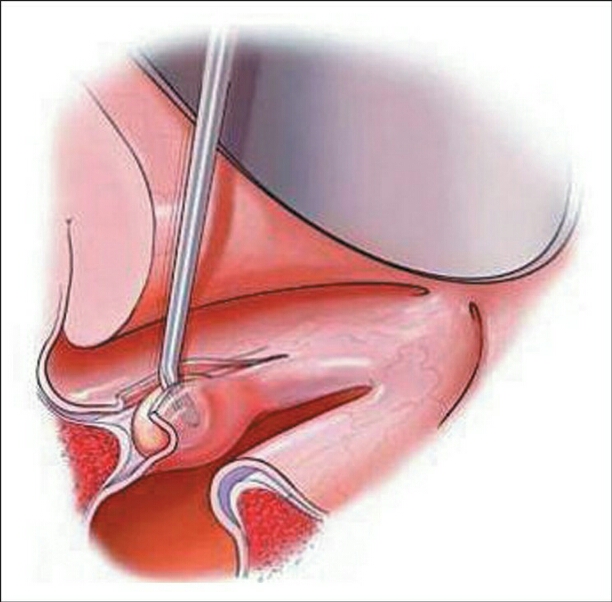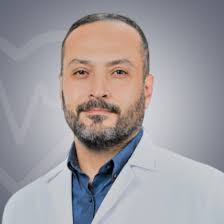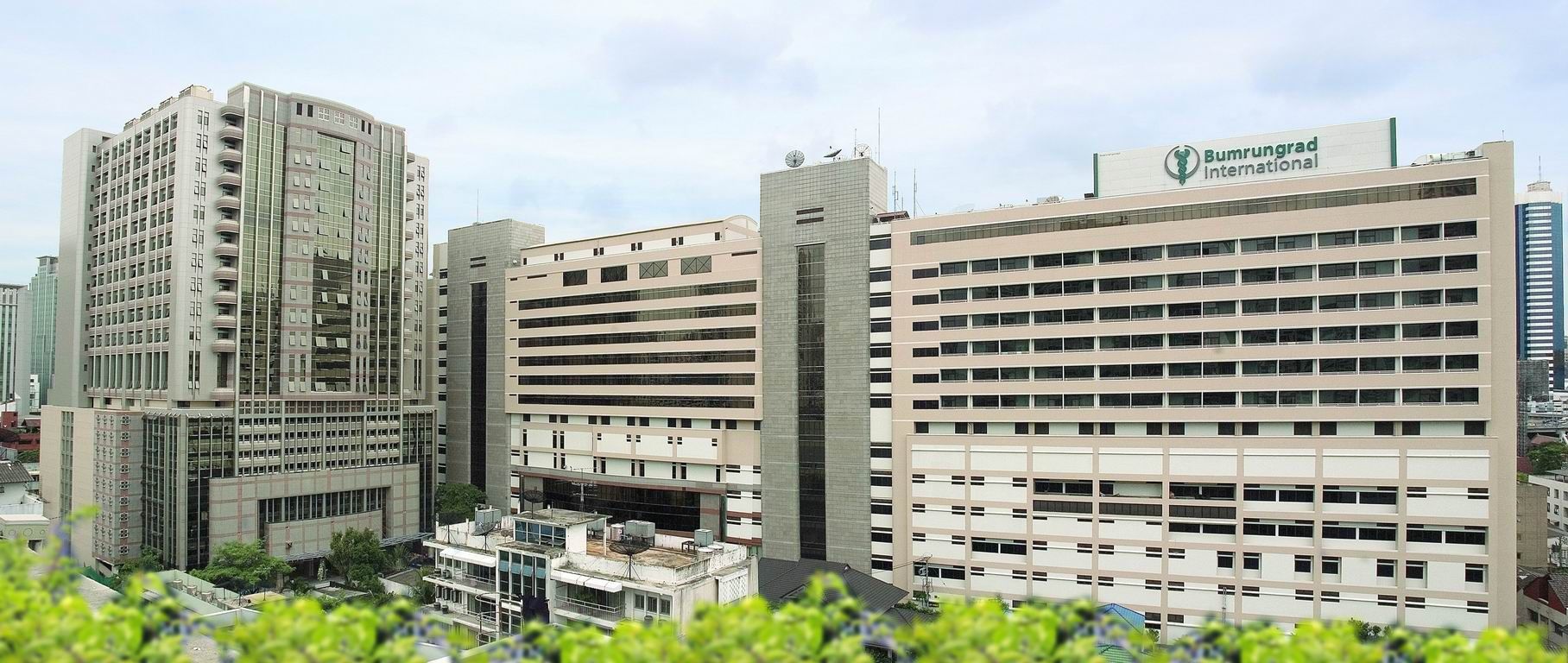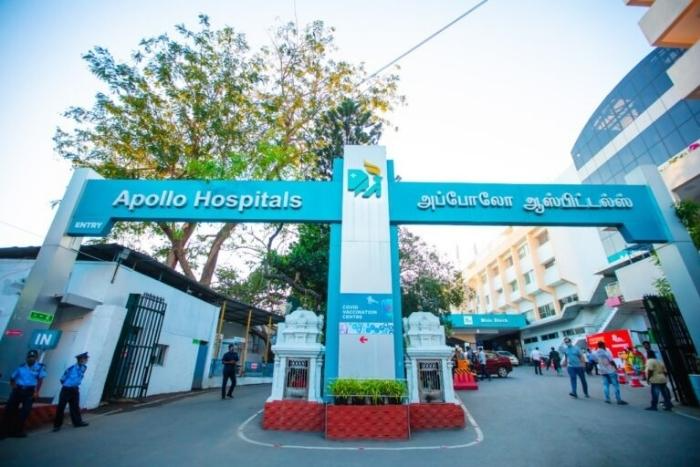Ear Nose Throat (ENT)
Micro Laryngeal Surgery- Treatment in India
Micro Laryngeal Surgery
Microlaryngeal surgery for treatment in India is basically a minimally invasive surgical procedure implemented to biopsy or separate abnormal development or growths, like granulomas or the benign cysts, present in the larynx. It is basically performed to treat the voice disorders or to recover or treat laryngeal cancer.
What is Micro laryngeal surgery?
Microlaryngeal surgery for treatment in India is basically a minimally invasive surgical procedure implemented to biopsy or separate abnormal development or growths, like granulomas or the benign cysts, present in the larynx. It is basically performed to treat the voice disorders or to recover or treat laryngeal cancer. The majority of microscopic voice surgery procedures, though performed on an outpatient basis, are performed under general anesthesia to minimize the danger of gagging or certain breathing issues. Patients who go through the microlaryngeal surgery basically recover faster than the patients who go through more obsolete traditional laryngeal surgery. They also have a supreme results in terms of the voice status or the quality. Microlaryngoscopy corrects voice disorders, speaking and specific breathing difficulties. It sorts all the other issues related to the larynx. It also cures cysts, lesions, benign tumors and Granulomas.
Why is micro laryngeal surgery required?
This Micro laryngeal surgery for treatment in India is executed for the specific voice problems is hopefully is not present very commonly. Generally, most of the voice disorders can be cured with the certain medications or the basic voice therapy. However, there are many conditions in which operative procedures are essential. Few benign vocal fold lesions like cysts or the specific polyps may not work to a more preventive method of treatment and will require surgery. Surgery is also required to treat the biopsy or to cure the specific lesions on the larynx that are suspected for the development of laryngeal cancer.
Symptoms leading to Micro Laryngeal Surgery
Micro laryngeal surgery (MLS) is conducted routinely for the treatment of a number of conditions involving the larynx or the vocal cords, in particular. Here are common symptoms that may lead a doctor to suggest this surgery: 
- Hoarseness or Voice Change
- Difficulty Breathing
- Frequent Coughing or Throat Clearing
- Pain or Discomfort in the Throat
- Loss of Vocal Range
- Foreign Body Sensation
- Weak or Breathy Voice
- Difficulty Swallowing
What is the procedure of Micro laryngeal surgery?
Microlaryngeal surgery for treatment in India is specifically carried and performed by a laryngoscope, or by using a very thin and lighted tube with a specific camera on the end that generally allows the doctor to view the area with utmost precision. When the laryngoscope is placed through the nose into the basic throat, and the lesion is situated, the surgeon separates the abnormal growth implementing the small surgical tools that have been executed by the laryngoscope to the operational site. As this procedure allows the surgeon to execute the operation with great precision, only the destroyed tissue is removed. The around area remains same without any issue or harm.
After the completion of the procedure, the patient is guided for many hours before coming back home. Many patients feel some kind or level of discomfort after the completion of the surgery, but generally respond well to over-the-counter pain comforters. If the pain is more critical, a medicine called corticosteroid will be prescribed for some time use. Acid reflux medication will also be suggested to make sure that the stomach acid do not disturb because of the recovering tissue. Proper voice rest is needed during the first few weeks post surgery. After the completion of the surgery is basically suggested monitoring in betterment and maintaining voice quality.
Microlaryngoscopy or the MLS, prepared by Oskar Kleinsasser in 1968, is a procedure that can be done with either the 'cold' instruments or with a carbon dioxide laser, in the phonomicrosurgery and in the cure of the benign and malign kind of diseases of the larynx. Basic anaesthesia is carried out and given by an oro-tracheal intubation, and the curing laryngoscope is implemented expose the glottal floor, permitting the proper and direct view of the specific vocal cords.
The patient is then monitored in a supine state with the head little enlarged and linked to a laryngo suspension apparatus having in fixable rod anchored to the bed, after proceeding of the telescopic test or the specific examination, the surgical microscope is settled at the back of the patient's head.
The pathological situations of the larynx that can be cured with this procedure include: papillomatosis, mild leukoplakia, specific carcinoma, nodules, cysts development, polyps, Reinke's oedema, granuloma disorder, appearance of scar, sulcus and vergeture, vascular lesions, glottic web and vocal fold paralysis or called as augmentation.
What complications can happen?
Microlaryngeal surger for treatment in India is generally successful in most of the cases but there are certain risks which can develop after the completion of the surgery.
- Pain is usually experienced by people who went under the microlaryngeal surgery.
- Numbness of tongue is also common post surgery.
- Bruising lips are also common risk observed after the completion of the surgery.
- Chipped Teeth are also common after the Microlaryngeal surgery.
- Difficulty in Breathing is also observed after Microlaryngeal surgery.
- Dental injury is also common after the Microlaryngeal surgery.
- Reactions because of anaesthesia is also common after the surgical procedure of Micro laryngeal.
- Bleeding can also occur as a complication of Micro laryngeal surgery.
- Due to anaesthesia given before the commencement of the micro laryngeal surgery, certain infection can occur as a risk of the surgery.
Causes leading to Micro Laryngeal Surgery
MLS is in many cases advised for particular conditions or changes in the larynx or more specifically in the vocal cords. Here are common causes leading to MLS:
- Vocal Cord Nodules or Polyps
- Vocal Cord Cysts
- Recurrent Respiratory Papillomatosis
- Laryngeal Granulomas
- Benign Tumors or Lesions
- Vocal Cord Haemorrhage
- Leukoplakia and Hyperkeratosis
- Laryngeal Cancer
- Persistent Laryngeal Edema
Facilities and Services offered for International Patients for Microscopic Laryngeal Surgery
Micro Laryngeal Surgery (MLS) for international patients is available in some hospitals and clinics and they tend to offer specific amenities and services that will meet the international patients’ needs. Here’s an overview of some common services:
- Medical Consultation
- Personalized Treatment Plans
- Language Interpretation Services
- Medical Visa Assistance
- Travel Arrangements
- Accommodation Assistance
- Pre- and Post-Surgical Services
- Comprehensive Health Check-ups
- Follow-up Care
Pre-Treatment Process of Microscopic Laryngeal Surgery
The preparatory protocols before Micro Laryngeal Surgery (MLS) are known to involve a couple of steps to guarantee the optimal preparation of the patient as well as the surgical team. Here's a breakdown of the usual pre-treatment process:
- Initial Consultation and Diagnosis
- Pre-Surgical Assessment
- Anaesthesia Consultation
- Voice Rest and Lifestyle Modifications
- Pre-Surgical Instructions
- Scheduling the Surgery
- Psychological Preparation
Anaesthesia for Laryngeal Surgery
Anaesthesia for laryngeal surgery depends on the level of the surgery, the medical fitness of the patient, and the surgeon’s preferences. General anaesthesia is administered during complex surgeries, while local anaesthesia with or without using sedative agents is favoured in minimally invasive procedures such as Micro Laryngeal Surgery. Both kinds of anaesthesia are relatively safe during application by skilled practitioners, and the selection depends on the patient’s situation and the operation to be conducted.
Diagnostic Tests for Micro Laryngeal Surgery Treatment
Diagnosis tests are very useful in establishing the feasibility of Micro Laryngeal Surgery (MLS) and relevance of the patient to the procedure. Here are the main diagnostic tests commonly performed:
- Laryngoscopy
- Videostroboscopy
- CT Scan
- MRI
- Voice Assessment
- Flexible Nasal Endoscopy
- Biopsy
- Barium Swallow
- Blood Tests
- Pulmonary Function Tests
- Allergy Tests
- Electromyography of the Vocal Cords
Procedure of Micro laryngeal surgery
- Microlaryngeal surgery for treatment in India is specifically carried and performed by a laryngoscope, or by using a very thin and lighted tube with a specific camera on the end that generally allows the doctor to view the area with utmost precision.
- When the laryngoscope is placed through the nose into the basic throat, and the lesion is situated, the surgeon separates the abnormal growth implementing the small surgical tools that have been executed by the laryngoscope to the operational site.
- As this procedure allows the surgeon to execute the operation with great precision, only the destroyed tissue is removed.
- The surrounding area remains the same without any issue or harm.
Post-Treatment Process of Microscopic Laryngeal Surgery
- After the completion of the procedure, the patient is guided for many hours before coming back home.
- Many patients feel some kind or level of discomfort after the completion of the surgery, but generally respond well to over-the-counter pain comforters.
- If the pain is more critical, a medicine called corticosteroid will be prescribed for some time use.
- Acid reflux medication will also be suggested to make sure that the stomach acid does not disturb because of the recovering tissue.
- Proper voice rest is needed during the first few weeks post-surgery.
- After the completion of the surgery is basically suggested monitoring in betterment and maintaining voice quality.
Microlaryngoscopy or the MLS, prepared by Oskar Kleinsasser in 1968, is a procedure that can be done with either the 'cold' instruments or with a carbon dioxide laser, in the phonomicrosurgery and in the cure of the benign and malign kind of diseases of the larynx. Basic anaesthesia is carried out and given by an oro-tracheal intubation, and the curing laryngoscope is implemented to expose the glottal floor, permitting the proper and direct view of the specific vocal cords. The patient is then monitored in a supine state with the head little enlarged and linked to a laryngo suspension apparatus having in fixable rod anchored to the bed, after proceeding of the telescopic test or the specific examination, the surgical microscope is settled at the back of the patient's head.
The pathological situations of the larynx that can be cured with this procedure include: papillomatosis, mild leukoplakia, specific carcinoma, nodules, cysts development, polyps, Reinke's oedema, granuloma disorder, appearance of scar, sulcus and vergeture, vascular lesions, glottic web and vocal fold paralysis or called as augmentation.
Success Rate of Micro Laryngeal Surgery
The overall success rate of Micro Laryngeal Surgery (MLS) is quite high and may range between 85% to 95% for most conditions which it manages including; vocal cord nodules, polyps, and benign growths. This rate considers the primary talking voice quality right after surgery and the final patient results for those who adhere to correct medical post-treatment regimes.
How soon will I recover?
- Following the procedure of Micro laryngeal surgery, you will be taken care of for a good number of hours then freed to return back to the home on the same day the operation.
- Most patients have or develop some level of unconsciousness or discomfort after the proceedings of the surgery, but it will generally respond well to some kind of pain relievers like medications called acetaminophen or ibuprofen.
- If your pain is more critical, a heavy dose form of medication can be suggested in a short interval of usage.
- Cough medicine will be suggested as well to promise that you do not disturb the sensitive or soft tissue of the larynx as it gets healed.
- Speaking will be critical for the initial few days after the completion of microscopic voice surgery as the vocal folds swell up and go through the healing process.
- It is good to relax your voice as much as needed in the few initial weeks after the surgery.
- Your doctor will give detailed guidance on voice use limitations after the micro laryngeal voice surgery.
- After a follow-up or routine appointment with your surgeon, several weeks post-surgery, you will most probably be eligible to restart your normal vocal activities.
Best Hospitals for Micro Laryngeal Surgery
- Artemis Hospital, Gurgaon
- Medanta The Medicity, Gurgaon
- Fortis Memorial Research Institute, Gurgaon
- Max Hospital, Saket
- BLK-Max Super Speciality Hospital, Delhi
Best Doctors for Micro Laryngeal Surgery
- Dr. Shashidhar TB
- Dr. K. K Handa
- Dr. Atul Kumar Mittal
- Dr. Sanjay Sachdeva
- Dr. W.V.B.S Ramalingam
Why Choose GetWellGo for Microlaryngeal Surgery?
There are plenty of reasons why one might want to go with GetWellGo for MicroLaryngeal Surgery (MLS) list for the potential benefits especially for the patient coming from another country. Here's why you might consider GetWellGo:
- Expert Medical Team
- State-of-the-Art Medical Facilities
- Personalized Care
- Comprehensive Pre- and Post-Operative Care
- International Patient Support
- Affordable and Transparent Pricing
- Excellent Success Rates
- Advanced Techniques and Minimal Recovery Time
- Ongoing Monitoring and Long-Term Care
Conclusion
Micro laryngeal surgery or endoscopic larynx surgery is a form of surgery used for treating small growths or diseases affecting the larynx; for instance, vocal cord nodules, polyps, cysts, and even stage I laryngeal carcinoma. This is because it provides better voice quality, shorter time to heal and lesser scarring than the traditional open approach surgery. MLS has fewer relapse rates, which can be between 85 to 95%, and is quite compatible with treatments such as radiation or Chemotherapy. Afterward, vocal rest is advised, along with speech therapy and tuning.
FAQ
1. What are the pros of Micro Laryngeal Surgery?
- Minimally Invasive: MLS utilizes instruments that enable surgery to be made through narrow openings or actually no cuts at all, again cutting down on trauma to the vocal cords.
- Precision: Special lenses in operating microscopes or endoscopes provide the surgeons with a macroscopic view of the larynx, downs to microscopic levels to ensure the correct removal of lesions or other pathologic tissue without cutting the normal tissue.
- Faster Recovery: Because MLS is less invasive, depending on the size of the tumour the downtime is generally shorter than with an open surgery and patients often experience reduced pain and scarring.
- Improved Voice Quality: In many cases, MLS can help people regain, or enhance their ability with regards to their vocal cords, which can greatly improve the quality of their voice.
- Reduced Risk of Complications: MLS accuracy lowers the probability of complications to the vocal cords or the nearby tissues consequently eliminating potential problems.
2. What are the possibilities of success in doing Micro Laryngeal Surgery?
- Benign Conditions (e.g., nodules, polyps, cysts): The success rate varies from 85 to 95 per cent in many cases clients see a significant improvement in their voice quality and function.
- Recurrent Respiratory Papillomatosis (RRP): For short term management, the success rates vary between 70 -80%, however, for long term management multiple surgeries may be needed as it is a recurrent disease.
- Laryngeal Cancer (early-stage): Medical science has been having high success rates when it comes to treatment of early stage cancer in a way that five-year survival rate can range from 85 to 90% and may be complemented with other treatments such as radiation and chemotherapy.
- Mortality and morbidity of MLS is generally low and values range between 85% to 95% depending on the limiting factors such as the general health of the patients as well as post-operation compliance.
3. How long does it take to recover from Micro Laryngeal Surgery?
- Immediate Recovery: Routine postoperative pain and swelling may last for three to five days after the operation. This can usually be treated with non-prescription medication for pain.
- Voice Rest: Patients are normally recommended to avoid using their voices for several days to weeks after the surgery in accordance to the extent of the surgery. Voice rest may be advised for the initial two days and then restricted to a physiotherapist’s prescription.
- Full Recovery: Most patients find that they return to normal function and recovery of their voice in 2-4 weeks after a bout of vocal fold nodules. However, for vocal cord tumor or RRP patients it will take some time before the patient regains complete normalcy.
- Speech Therapy: The other use of speech therapy may also be implemented after surgery in case the vocal cords were heavily damaged to enable the patient recovers normal phonation.
- Follow-up Visits: It is thus common practice to see the surgeon frequently within the first one to two weeks after the surgery depending on the rate of healing of the vocal cords.
4. What must one do to increase their chances of getting the best results with Micro Laryngeal Surgery?
- Follow Post-Operative Instructions: Especially for voice, one needs to adhere to the surgeon’s advice related to voice restriction, water intake, and medicine intake at all costs.
- Avoid Strain on the Voice: Do not use raised voice or mumble or continually clear your throat.
- Speech Therapy: If referred to speech therapy, they suggest one should attend for the purpose of enhancing vocal cord recovery and functionality.
- Healthy Lifestyle: Abstain from smoking and ensure that you live a healthy lifestyle, this will help you may your recovery and also help you avoid any form of voice disorder in the near future.
TREATMENT-RELATED QUESTIONS
GetWellGo will provide you end-to-end guidance and assistance and that will include finding relevant and the best doctors for you in India.
A relationship manager from GetWellGo will be assigned to you who will prepare your case, share with multiple doctors and hospitals and get back to you with a treatment plan, cost of treatment and other useful information. The relationship manager will take care of all details related to your visit and successful return & recovery.
Yes, if you wish GetWellGo can assist you in getting your appointments fixed with multiple doctors and hospitals, which will assist you in getting the second opinion and will help you in cost comparison as well.
Yes, our professional medical team will help you in getting the estimated cost for the treatment. The cost as you may be aware depends on the medical condition, the choice of treatment, the type of room opted for etc. All your medical history and essential treatment details would be analyzed by the team of experts in the hospitals. They will also provide you with the various types of rooms/accommodation packages available and you have to make the selection. Charges are likely to vary by the type of room you take.
You have to check with your health insurance provider for the details.
The price that you get from GetWellGo is directly from the hospital, it is also discounted and lowest possible in most cases. We help you in getting the best price possible.
No, we don't charge patients for any service or convenience fee. All healthcare services GetWellGo provide are free of cost.
Top Doctors for Ear Nose Throat (ENT)
Top Hospitals for Ear Nose Throat (ENT)
Contact Us Now!
Fill the form below to get in touch with our experts.







